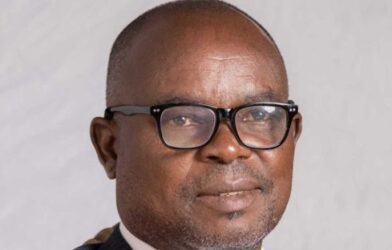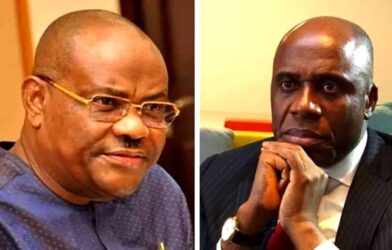The stage is now fully set for judgment delivery by the Supreme Court in a suit brought against the Federal Government on the controversial Naira re-design and cashless policy.
Sixteen States of the Federation instituted the suit to challenge the legality or otherwise of the policy.
DAILY POST correspondent noted that the suit spearheaded by Kaduna, Kogi and Zamfara states has been slated as the first case on the cause list for final verdict.
Justice John Inyang Okoro who led a 7-man panel of Justices of the Court had on February 22 fixed today, Friday for the court to make its decision known on the matter.
As of the time of this report, the Supreme Court’s Main room where the judgment is to be handed down, has been filled up by retinue of lawyers involved in the matter and representatives of the states.
Besides that, our correspondent also noted that security has been beefed up both within and outside the court.
All those seeking to access the court room are being frisked by security operatives to prevent security breaches.
Similarly, about 25 Senior Advocates of Nigeria, SANS, representing various parties have arrived at the court.
The sixteen states led by Kaduna, Kogi and Zamfara are praying the apex Court to void and set aside the policy on the ground that it is inflicting hardships on innocent Nigerians
They accused President Muhammadu Buhari of usurping the function of the Central Bank of Nigeria, CBN, in the introduction and implementation of the policy and asked that the directive issued by Buhari be voided.
On its part, the Federal Government challenged the jurisdiction of the Apex Court on the grounds that the CBN was not joined as a party and that the dispute on the policy ought to be directed at the CBN so that the suit can be referred to the Federal High Court.












Comments are closed